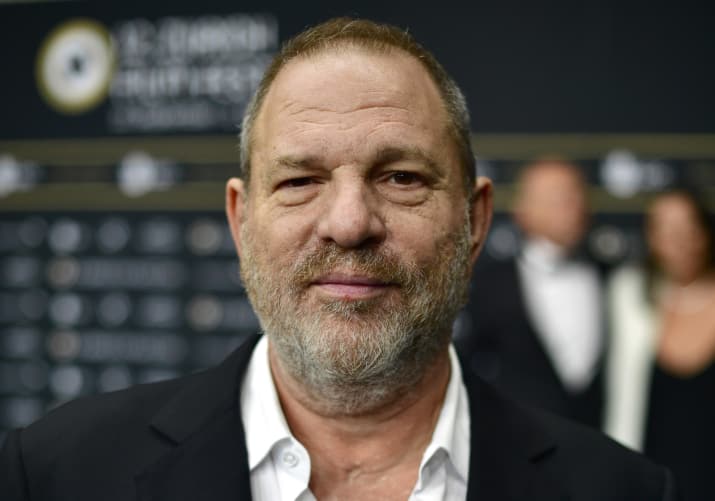Why it took decades for women to talk about Harvey Weinstein
October 31, 2017
Over 50 women and counting have made allegations of sexual assault or harassment against film producer and former studio executive Harvey Weinstein.
These allegations span decades and involve everything from groping to full-blown rape.
In addition to these women, quite a few men have come out in support of them.
On Twitter, Ryan Gosling said, “He is emblematic of a systemic problem. Men should stand with women and work together until there is real accountability and change.”
Quentin Tarantino even admitted that he knew about some of what was going on, but didn’t do anything about it.
It’s an awful truth to tell, but at least he’s coming forward about it now.
So, I’ll go ahead and ask the question that everyone else seems to be asking: Why now?
If these terrible things have happened to so many people, and even more people knew about them, why did it take decades for someone to speak up and open the floodgates?
There are a few possible answers to this.
I’ll start with the least likely.
One: The allegations are false, and everyone is lying.
This is definitely not the case with Weinstein.
To reiterate, over 50 women have come forward about his alleged actions.
If this were a conspiracy to take him down for some other reason, I highly doubt that so many women would be in on it.
In fact, the idea that they won’t be easily believed is a huge reason why most women don’t report sexual assault in the first place.
That brings me to the next possibility.
Two: The survivor is ashamed or thinks it’s her/his own fault.
This is a major factor.
Many survivors of sexual assault or harassment feel that this horrible thing happened to them because of something they did or said.
Questions such as “What were you wearing?” “How much did you have to drink?” and “Were you leading him on?” only add to the atrocity of victim blaming.
In an article from the New Yorker, Italian actress Asia Argento said that, being a victim, she feels responsible and as though she isn’t a strong woman.
Model and actress Cara Delevingne said that she was “hesitant about speaking out” because she felt guilty and didn’t want to hurt his family.
Society has made these women feel as though they owe something to their attacker and that they need to protect him from what he ultimately deserves.
Of course, they did speak out about their experiences, but not without difficulty.
Three: The survivor is afraid that she/he won’t be taken seriously.
In our society, while there’s certainly more equality now than 40 years ago, women still aren’t viewed with as much respect and credibility as men.
So, it’s not hard to understand why a female victim of sexual assault might not immediately name her abuser, especially with someone as rich, famous and respected as Harvey Weinstein.
On top of not being believed, many women who have the courage to speak out about their traumatic experiences end up being shamed and ridiculed by the public.
The fact that the public’s first response to these allegations was “Why did they wait so long?” instead of immediately supporting them, is very telling.
In the majority of the Weinstein cases, the women didn’t speak up because they were afraid.
They were afraid for their careers and their source of income.
They were afraid of Weinstein’s pull in the media.
They were afraid of him taking legal actions against them after he had them sign nondisclosure agreements and affidavits for huge sums of money.
Fear is the driving factor.
Weinstein made these women feel uncomfortable, isolated and afraid.
Then, he continued to use that fear against them after the fact so they would stay quiet.
So, now that we understand why it has taken these women so long to speak out against their abuser, maybe we can finally begin to support them and all the other women, men and children who have had to live through such an awful experience instead of questioning their motives.



